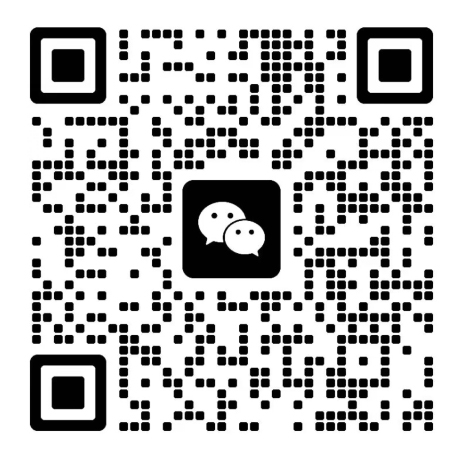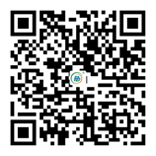北京介電常數測試儀生產廠家特點:
◎ 本公司創新的自動Q值保持技術,使測Q分辨率至0.1Q,使tanδ分辨率至0.00005 。
◎ 能對固體絕緣材料在10kHz~120MHz介質損耗角(tanδ)和介電常數(ε)變化的測試。
◎ 調諧回路殘余電感值低至8nH,保證100MHz的(tanδ)和(ε)的誤差較小。
◎ 特制LCD屏菜單式顯示多參數:Q值,測試頻率,調諧狀態等。
◎ Q值量程自動/手動量程控制。
◎ DPLL合成發生1kHz~60MHz, 50kHz~160MHz測試信號。獨立信號 源輸出口,所以本機又是一臺合成信號源。
◎ 測試裝置符合國標GB/T 1409-2006,美標ASTM D150以及IEC60250規范要求。
北京介電常數測試儀生產廠家主要技術指標:
2.1 tanδ和ε性能:
2.1.1 固體絕緣材料測試頻率10kHz~120MHz的tanδ和ε變化的測試。
2.1.2 tanδ和ε測量范圍:
tanδ:0.1~0.00005,ε:1~50
2.1.3 tanδ和ε測量精度(1MHz):
tanδ:±5%±0.00005,ε:±2%
工作頻率范圍:50kHz~50MHz 四位數顯,壓控振蕩器
Q值測量范圍:1~1000三位數顯,±1Q分辨率
可調電容范圍:40~500 pF ΔC±3pF
電容測量誤差:±1%±1pF
Q表殘余電感值:約20nH
振蕩頻率
a.振蕩頻率范圍:25kHz~50MHz;
b.頻率分檔:
25~74kHz, 74~213kHz, 213-700kHz, 700kHz~1.95MHz,
1.95MHz~5.2MHz, 5.2MHz~17MHz, 17~50MHz。
c.頻率誤差:2×10±1個字。
Q合格指示預置功能,預置范圍:5~999。
介質損耗和介電常數是各種電瓷、裝置瓷、電容器等陶瓷,還有復合材料等的一項重要的物理性質,通過測定介質損耗角正切tanδ及介電常數(ε),可進一步了解影響介質損耗和介電常數的各種因素,為提高材料的性能提供依據;儀器的基本原理是采用高頻諧振法,并提供了,通用、多用途、多量程的阻抗測試。它以單片計算機作為儀器的控制,測量核心采用了頻率數字鎖定,標準頻率測試點自動設定,諧振點自動搜索,Q值量程自動轉換,數值顯示等新技術,改進了調諧回路,使得調諧測試回路的殘余電感減至zui低,并保留了原Q表中自動穩幅等技術,使得新儀器在使用時更為方便,測量值更為精確。儀器能在較高的測試頻率條件下,測量高頻電感或諧振回路的Q值,電感器的電感量和分布電容量,電容器的電容量和損耗角正切值,電工材料的高頻介質損耗,高頻回路有效并聯及串聯電阻,傳輸線的特性阻抗等。該儀器用于科研機關、學校、工廠等單位對無機非金屬新材料性能的應用研究。
Dielectric constant and dielectric loss tester features:
Automatic Q / / the company's innovative value keeping technology, the resolution of Q to 0.1Q, the resolution to 0.00005 tan.
Can the solid insulating materials in the dielectric loss angle of 10kHz ~ 120MHz (tan delta) and Permittivity (epsilon) change test.
The tuning circuit of residual low inductance to guarantee 8nH, 100MHz (Tan d) and (E) the error is small.
The special multi parameter LCD screen menu display: Q value, test frequency tuning etc..
The Q value range automatic / manual range control.
The synthesis of DPLL 1kHz ~ 60MHz, 50kHz ~ 160MHz test signal. Independent signal source output, so the machine is a synthetic signal source.
The test device complies with GB/T 1409-2006, ASTM D150 and IEC60250 American Standard specifications.
The main technical indexes of dielectric constant and dielectric loss tester:
2.1 Tan D and E performance:
2.1.1 solid insulating materials test frequency 10kHz ~ tan delta and epsilon 120MHz change test.
2.1.2 tan delta and epsilon measurement range:
Tan 8: 0.1 ~ 0.00005, 1 ~ 50.
2.1.3 tan delta and epsilon precision (1MHz):
Tan 8: + 5% + 0.00005 + 2% epsilon:
Operating frequency range: 50kHz ~ 50MHz four digit digital display, voltage controlled oscillator
Q value measurement range: 1000 ~ three 1 digit display, + 1Q resolution
Adjustable capacitance range: 40 ~ 500 pF C + 3pF
Capacitance measurement error: + 1% + 1pF
Q table residual inductance value: about 20nH
oscillation frequency
A. frequency range: 25kHz ~ 50MHz;
B. frequency shift:
25 ~ 74kHz, 74 ~ 213kHz, 213-700kHz, 700kHz ~ 1.95MHz,
1.95MHz ~ 5.2MHz, 5.2MHz ~ 17MHz, 17 ~ 50MHz.
C. frequency error: 2 * 10 + 1 words.
ualified preset indication function, the preset range: 5 ~ 999.
Dielectric loss and dielectric constant is a variety of porcelain, porcelain device, capacitor, etc. ceramic and composite materials, such as an important physical properties, by measuring the dielectric loss angle tan delta and dielectric permittivity (epsilon), further understanding of the factors in the influence of dielectric loss and dielectric constant, in order to improve the properties of materials provides the basis; equipment and the basic principle is using high frequency resonance method, and provides, GM, multi-purpose, multi range impedance test. It to single chip computer as the instrument control, core measurements using digital frequency locking, frequency standard test point automatic setting, resonant point automatic search, Q value range automatic conversion, numerical display and other new technologies, improved the tuning circuit, so as to reduce to a minimum the tuning circuit for testing residual inductance and retains the original Q table in the automatic amplitude stabilizer technology, makes the new instrument in use is more convenient and the measured values are accurate. The instrument can under high frequency test conditions, measurement of high frequency inductive or resonant loop of the Q value, inductance and distributed capacitance of inductor, capacitor of capacitance and loss angle tangent value, electrical materials, dielectric loss in high frequency and high frequency circuit in parallel and series resistance, transmission line characteristic impedance. The application of scientific research institutions, schools, factories and other units of the new material properties of inorganic non metal for the instrument.








